Girlguiding Ulster camps cancelled due to Covid rules
- Published
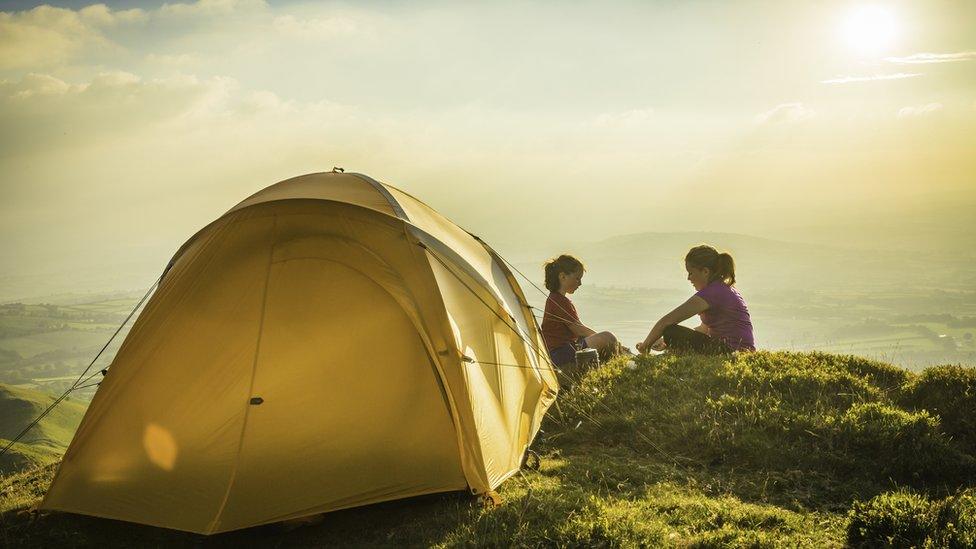
The rules say each child must have a separate tent, unless it is shared with a sibling they live with
Girlguiding Ulster has cancelled planned summer camps for hundreds of girls due to executive restrictions on overnight activities for children.
Stormont ministers agreed last Thursday that overnight residential stays for children and young people could resume.
However, only six young people can stay indoors overnight and children are not allowed to share rooms or tents.
Girlguiding Ulster said this made the camps, which were to be attended by 450 girls, "unviable".
Other youth organisations and residential centres are also likely to be affected by the restrictions.
The guidelines were published in the Education Authority's (EA) "Youth Restart Guidance".
What are the new rules?
Only six children or young people can stay indoors overnight and they must have exclusive use of the building they are staying in.
They can be accompanied by youth leaders "based on risk assessments and the needs of the group".
Each child or young person also has to have a separate room, unless they are sharing with a sibling from the same household.
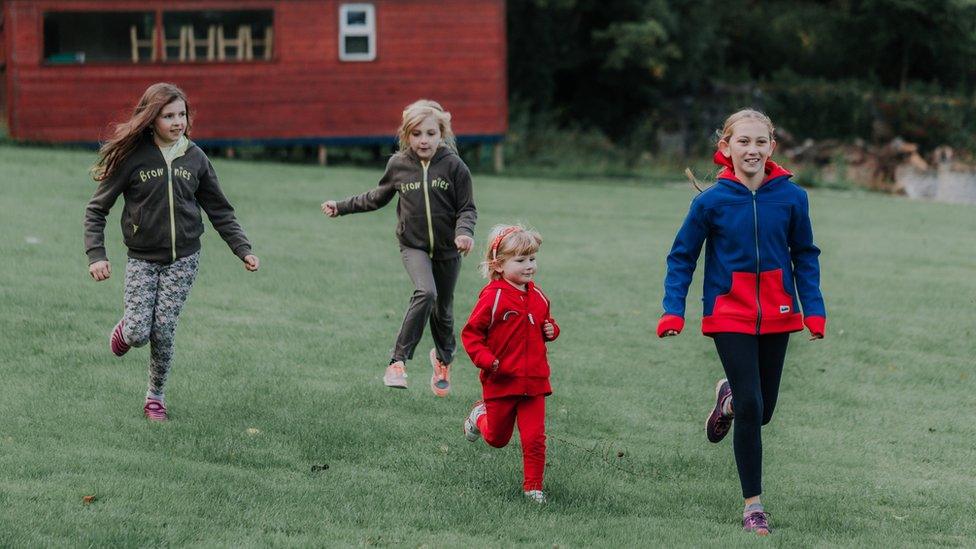
The organisation says it needs to know on Thursday if it will be allowed to have more girls to a tent
There is no limit on the number of children or young people who can camp outdoors overnight.
However, they have to be in a bubble and not mix with other groups.
But each child must have a separate tent on their own unless they are sharing with a sibling from the same household.
'Extremely disappointed'
It is that condition which has led Girlguiding Ulster to cancel weekend camps planned at its Lorne estate in County Down for next month.
The organisation told BBC News NI it was "extremely disappointed" to scrap the camps, which were for children aged seven to 14.
Chief commissioner Debbie McDowell said they were concerned about safeguarding if girls were alone in their tents overnight.
She said girls would be allowed to sit beside each other on the bus to the camp but not share a tent.
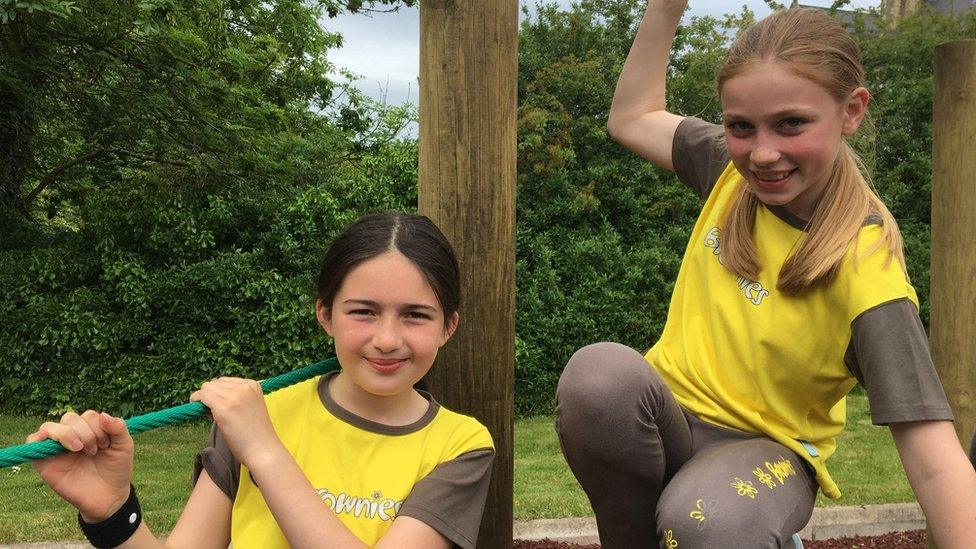
Girlguiding Ulster said it would instead offer some more outdoor activities to girls at Lorne
Speaking to BBC News NI's Good Morning Ulster, she said: "If you can imagine a seven-year-old sleeping overnight in a tent on her own.
"That tends to be the time when some of the younger ones tend to become quite homesick - the whole part of camping and going away is to be with your friends.
"I don't think I would sleep the weekend knowing every single one of my girls was in a tent on their own."
Girlguiding Ulster had received EA funding for the Summer Jam programme, which it said it would have to "relinquish" if restrictions did not change to allow it to go ahead.
Ms McDowell said they would need to know on Thursday if regulations would change to allow more girls per tent.
"We can't wait for this decision to be reversed in three weeks' time - that will just be too late for us," she added.
Girlguiding Ulster said it would instead offer some more outdoor activities to girls at Lorne which would not involve overnight stays.
Former Education Minister Peter Weir had made £5m in funding available to allow youth centres and youth organisations to run activity camps, and to open for longer over the summer.
'Guidance regularly reviewed'
The EA runs some residential centres but there are also a number run by other organisations.
"This is guidance for the voluntary and community sectors," the EA said.
"It is the responsibility of the management committees of the host residential to determine how this guidance is applied."
"The guidance applies in full to Education Authority centres.
"Guidance is reviewed regularly and will be amended accordingly."
Scouts NI said it had not yet had to cancel any of its summer activities but it was "disappointed" by the residential restrictions, which differ to those elsewhere in the UK.
Related topics
- Published7 July 2021
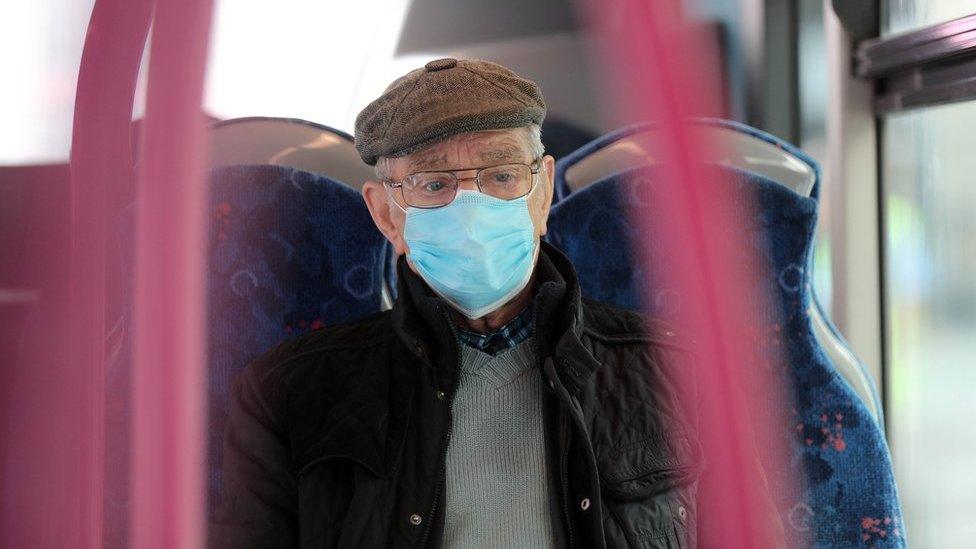
- Published6 July 2021
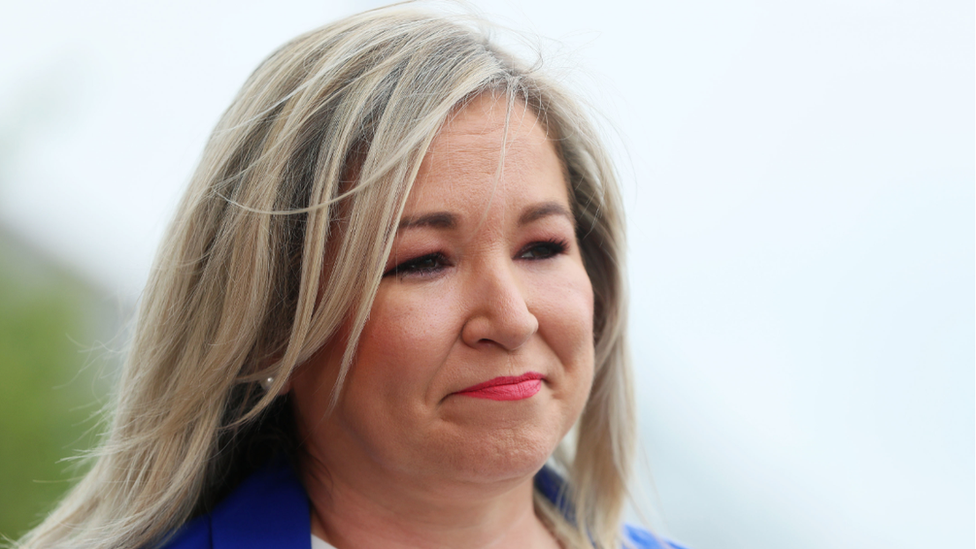
- Published1 July 2021
